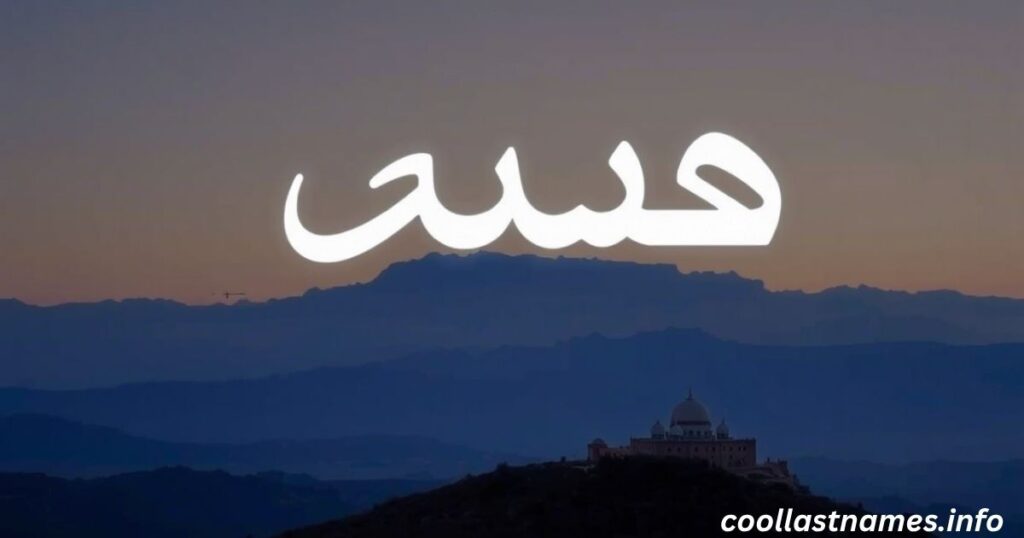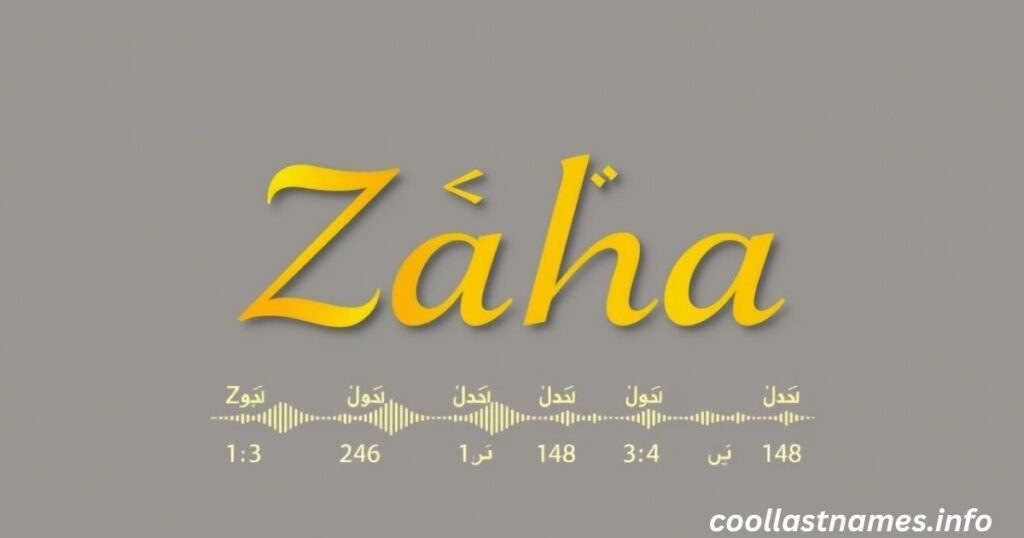The name “Zaha” is a beautiful and powerful symbol of radiance and brilliance. In Arabic, “zaha meaning in arabic splendor or radiance, evoking a sense of brightness and elegance. It originates from the Arabic root word “ز-هـ-ا” (Z-H-A), which emphasizes shine and brilliance, making it a name full of light and grace. IN Urdu, “Zaha” (زَہاء) carries a similar meaning, symbolizing light and radiance.
The name holds cultural significance in many Arabic-speaking communities, where it is admired not only for its beautiful meaning but also for its association with strength and elegance. Over time, the name has gained worldwide recognition, especially through Zaha Hadid, the renowned British-Iraqi architect. Her revolutionary work in architecture has only added to the name’s allure, as her designs reflect innovation, brilliance, and creativity. Zaha is more than just a name—it’s a legacy of light and inspiration.
What Does Zaha Mean in Arabic?

Zaha meaning in Arabic signifies radiance or brilliance. It originates from the Arabic root letters “ز-هـ-ا” (Z-H-A), emphasizing brightness and shine. This name embodies a sense of luminosity and elegance, often associated with beauty and grace. Its meaning conveys a person who illuminates their surroundings.
The name “Zaha” is predominantly used for girls in Arabic-speaking cultures. It reflects qualities of strength, elegance, and a glowing presence. The pronunciation of “Zaha” is typically “ZAY-huh,” and it carries a sense of sophistication and allure. The name has gained recognition through notable figures like Zaha Hadid, the renowned British-Iraqi architect, whose work exudes brilliance and innovation.
How to Write Zaha in Arabic

The name Zaha is written in Arabic as زَهاء. This elegant script captures the essence of the name, which means “radiance” or “splendour.” The Arabic letters ز (Z), هـ (H), and ا (A) come together to form a name that symbolizes brightness and elegance.
In Arabic calligraphy, زَهاء is often stylized with flowing curves and intricate details, reflecting its graceful meaning. The script’s fluidity mirrors the luminosity and charm associated with the name. Zaha meaning in Arabic cultures for its beauty and significance.
How to Pronounce Zaha

The name Zaha is pronounced as ZAH-hah. The emphasis is on the first syllable, “ZAH,” which sounds like “zap,” and the second syllable, “hah,” is pronounced softly, similar to “hat.” This pronunciation aligns with the name’s meaning of radiance and brilliance.
To pronounce “Zaha” correctly, say “ZAH” with a sharp ‘z’ sound, followed by “hah” with a soft ‘h’. This clear and melodic pronunciation reflects the name’s elegant meaning. It’s a name that rolls off the tongue with grace and clarity.
Spelling Variations of Zaha
The name Zaha is primarily written as زَهاء in Arabic, signifying “radiance” or “splendour.” In Hebrew, it’s spelled צָחָה (Tzachah), meaning “clear” or “pure.” These variations reflect the name’s luminous and elegant connotations across different cultures.
Other common variations include Zahaa, Zaha, and zaha meaning in Arabic, each maintaining the essence of brightness and clarity. Zaha meaning in Arabic are used in various regions, showcasing the name’s widespread appeal and enduring beauty. Additionally, in Japanese, the name is represented by kanji characters, each adding unique nuances to its meaning.
Recommended Blog: Areeb meaning in Arabic, origin and popularity
Meaning and Significance of Zaha
The name Zaha carries profound meanings across various cultures. In Arabic, it signifies “radiance” or “splendour,” symbolizing brightness and elegance. This association with light reflects a sense of clarity and purity. In Hebrew, the name also conveys meanings of clarity and purity, emphasizing transparency and cleanliness. In Urdu, زَہاء (Zaha) refers to the early morning light, symbolizing new beginnings and hope.
The name’s significance extends beyond its linguistic roots. It embodies qualities of brilliance, clarity, and new beginnings, making it a popular choice for those seeking a name with deep meaning. The widespread use of Zaha across different cultures highlights its universal appeal and enduring beauty. Whether in Arabic, Hebrew, or Urdu-speaking regions, Zaha resonates with individuals who appreciate its luminous and elegant connotations.
Popularity and Usage of the Name Zaha
The name Zaha is gaining recognition globally, especially in English-speaking countries. In the United States, it reached its peak popularity in 2020, being given to 16 babies per million. By 2023, it ranked 8,015th in popularity, indicating a steady interest
Internationally, Zaha is predominantly used as a girl’s name. Between 1909 and 2022, 85 girls were named Zaha across eight countries, with the United States leading in usage . The name’s multicultural origins and the influence of renowned architect Zaha Hadid have contributed to its widespread adoption. Its simplicity and elegant meaning make it a distinctive choice for parents worldwide.
Origin and Cultural Roots of the Name Zaha
The name Zaha has rich origins in both Arabic and Hebrew cultures. In Arabic, it is derived from the root letters ز-هـ-ا (Z-H-A), signifying “radiance” or “splendour.” This root emphasizes qualities of brightness and elegance, making Zaha a name that embodies light and beauty.
In Hebrew, Zaha means “clear” or “pure,” reflecting clarity and transparency. This dual cultural significance enhances the name’s appeal, bridging linguistic and cultural divides. Additionally, the name Zaha is associated with the Arabic name زهراء (Zahra), meaning “flower” or “radiant,” further enriching its cultural roots.
Spelling Variations and Regional Adaptations
- Arabic Variants: In Arabic, the name is written as زَهاء (Zahāʾ), emphasizing its luminous meaning.
- Hebrew Form: The Hebrew spelling is צָחָה (Tzachah), meaning “pure” or “clean.”
- Alternative Spellings: Common variations include Zahaa, Zakah, and Zahaa, each retaining the essence of brightness and clarity.
- Cultural Adaptations: In Swahili, Zaha can mean “to shine,” showcasing its cross-cultural appeal.
- Literary Influence: The name’s popularity has been bolstered by figures like architect Zaha Hadid, highlighting its global recognition.
FAQ’s
What is the meaning of Zaha in the Quran for girls?
The name Zaha is not explicitly mentioned in the Quran. However, it is closely related to Zahaa (ضَحَاء), meaning “morning” or “brightness,” symbolizing clarity and positivity.
How do you spell Zaha in Arabic?
zaha meaning in Arabic is spelled as زَهاء, representing “radiance” or “splendour,” with letters ز (Z), هـ (H), and ا (A).
What does zaha meaning in Arabic?
Zehan is an Arabic name meaning “intelligent” or “bright-minded,” associated with wisdom and clarity, derived from the root ز-هـ-ا.
What is the spiritual meaning of Zaha?
Spiritually, Zaha signifies enlightenment and inner clarity, embodying qualities of radiance, purity, and a soul that shines with goodness.
Is Zaha a common name in Arabic-speaking countries?
Yes, zaha meaning in Arabic is recognized in Arabic-speaking countries, symbolizing radiance and brilliance. Its usage varies regionally, reflecting cultural preferences.
Conclusion
The name Zaha holds profound significance in both Arabic and Urdu languages. zaha meaning in Arabic refers to “radiance,” “brilliance,” or “splendor,” symbolizing light and clarity. This meaning reflects qualities of brightness and purity. The name is associated with positivity and elegance, making it a meaningful choice. Its simplicity and profound meaning contribute to its appeal.
In Urdu, Zaha is written as “ضحیٰ” and means “پہر دن چڑھنے کا وقت,” which refers to the time when the sun rises and the day begins. This interpretation aligns with the Arabic meaning, emphasizing light and new beginnings. The name is appreciated for its beautiful meaning and cultural significance. Choosing Zaha reflects a connection to light, clarity, and a fresh start.

John Dale is the admin of Coollast Names, a blogging site, with 5 years of experience. He manages content, ensures quality, and keeps everything running smoothly. His expertise helps readers find unique and interesting last names easily.








